It can be disappointing to put the time into making pickles only to find the texture is too mushy. One thing all good pickles have is a nice crunch and a crispness.
No matter what type of vegetable you are fermenting or pickling I find that keeping that snap when you bite into it makes a big difference to the end result.
What makes a pickle lose texture and how can we prevent them from going mushy?
Table of Contents
What Causes Soft Pickles?
There are a number of causes as to why some pickles might go soft and lose their bite. The main things are:
- Pickling brine not salty enough.
- Pickles are not fully submerged in vinegar or brine.
- Heat processed too long or at a too high temperature.
- Over-ripe or poorly stored vegetables.
Along with these reasons, there could be enzymes in the vegetable that will continue to breakdown the texture of the pickle.
An often-cited example is the blossom end of cucumbers if left on the cucumber will cause the pickle to soften. I’m not 100% sure this is the case but I still trim the ends off cucumbers when I pickle them.
Looking at some of the issues in the list above we can easily rectify them to ensure any pickles we make maintain a good crunch.
How To Keep Pickles Crunchy & Firm
First of all, the best way to make sure pickles don’t go soft and mushy is to use the best produce you can find.
Using The Freshest Produce
If it is not fresh then some of the firmness is going to be lost before we have even pickled and processed them.
If you grow your own then this isn’t a problem because you can pick and then pickle within a very short time frame.
If you are buying vegetables from a store then keep an eye out of sourcing the best you can find. Always buy in season as this is when you are going to get the freshest and tastiest produce
Using The Right Amount Of Salt
Salt is crucial to not only fermentation but also pickling in vinegar. It seasons at the same time as drawing moisture out of the vegetables being pickled.
The effect of salt is easily demonstrated when preparing sauerkraut. Just a tablespoon of salt sprinkled on a whole head of cabbage draws so much moisture out of the leaves it is quite surprising.
The process of pulling water out of the pickles leads to the pickle firming up. The lesser water content keeps the pickle firm and gives it a snap even months down the line.
Heated To Too Higher Temperature For Too Long
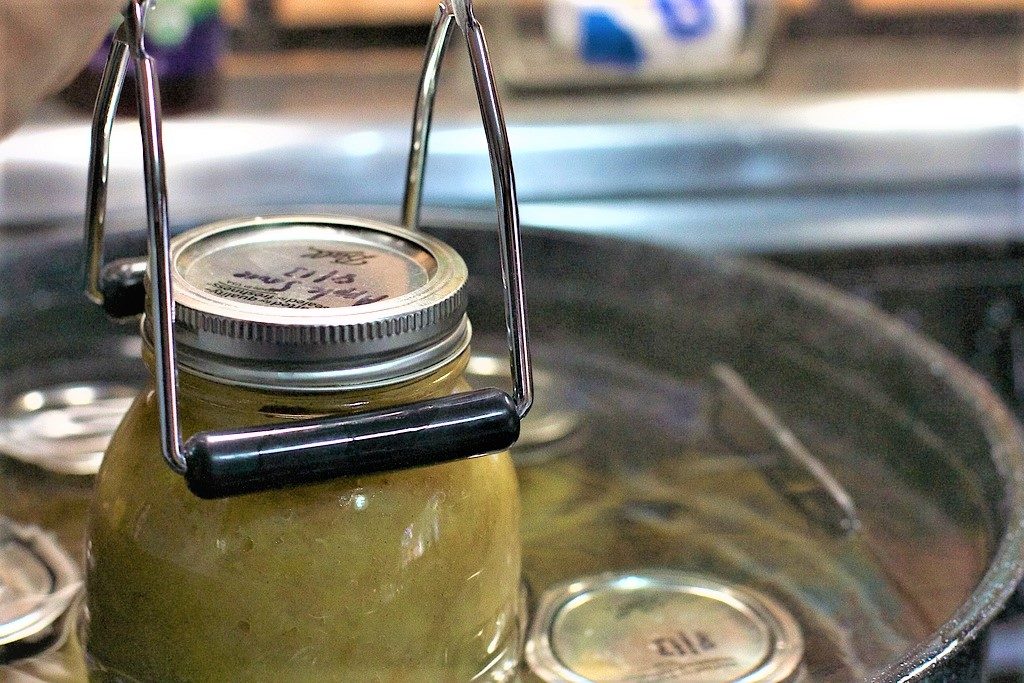
Heat processing pickles will make them last a lot longer, however, the trade-off is that you lose some of the texture, especially in delicate vegetables like cucumbers.
If you plan to store pickles for a long time then heat processing is required so the only way to mitigate some of the softening of the vegetables is to make sure you are heat processing at the right temperature and for the correct amount of time.
The higher the temperature and the longer the time the softer the vegetables will become.
The most important thing though is to make sure you do it correctly even if you do lose some of the texture in the process.
Ensure The Pickles Are Submerged
If you are fermenting then make sure you weigh down vegetables properly. Use fermentation weights or bags filled with brine to ensure everything is submerged.
If you are pickling with vinegar and fermentation weights are not appropriate then the best thing to do it to wedge vegetables in the jar so they don’t float.
Use jars with shoulders for things like dill pickles and you can wedge the cucumbers in to prevent them from floating above the pickling liquor.
Using Pickle Crisp, Calcium Carbonate or Alum

A number of commercially available products are sold with the purpose of keeping pickles crisp. Some people use them in all their pickle recipes others don’t think they really do much. I would say that it could be worth trying for yourself to see whether you prefer the texture of pickles with or without these products
Pickle Crisp™
Pickle crisp is a product sold by Ball and a registered trademark. The main ingredient is calcium carbonate which is a mineral pretty much like chalk. It is found in most tap water and contributes to water hardness to varying degrees.
Alum
Alum is another pickling agent that was used more in the past than today. It is a double sulfate of aluminium or potassium and was recommended for pickling in various recipes from the 1950s and ’60s.
The USDA state that it is safe to use in pickles but it does not necessarily improve the firmness of pickles.
Does Pickle Crisp Work?
Calcium carbonate or pickle crisp is said to work. In most reviews, online people state that it does make a difference in side by side tests.
Whether it makes a noticable difference or not is another thing. The best thing to do it to try it for yourself, only then can you decide if it is worth the money to use it in your own pickles.
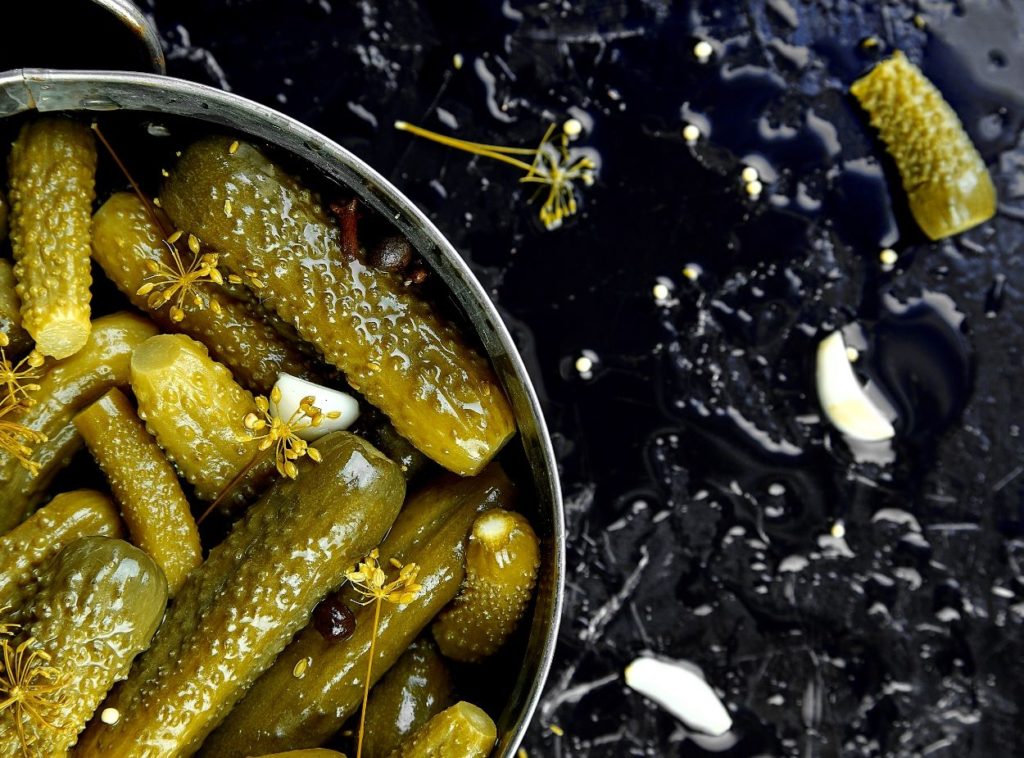
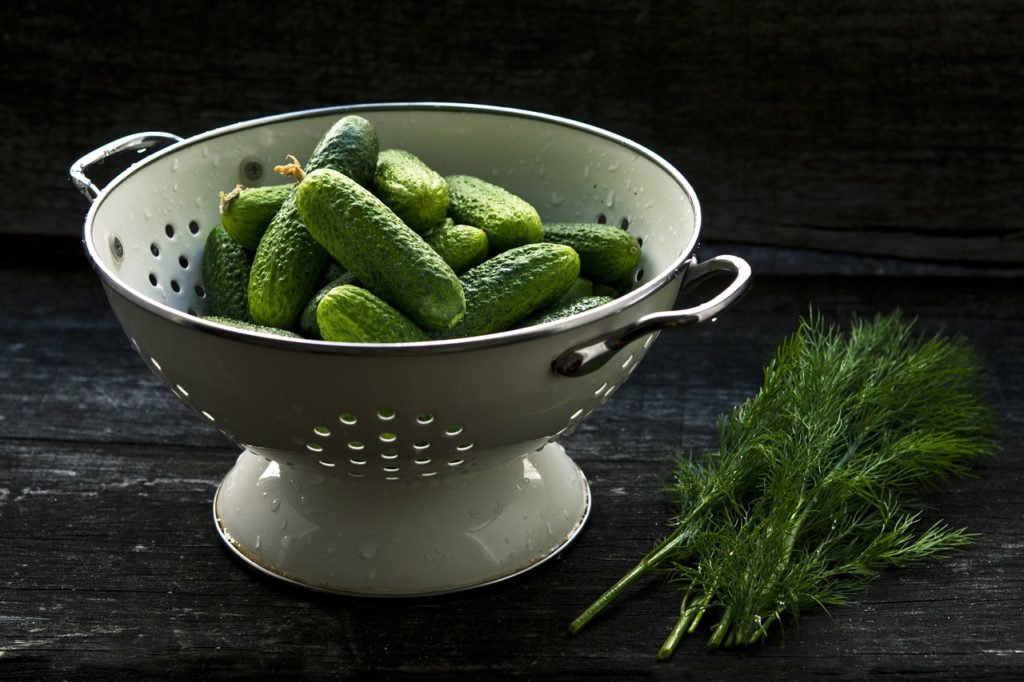
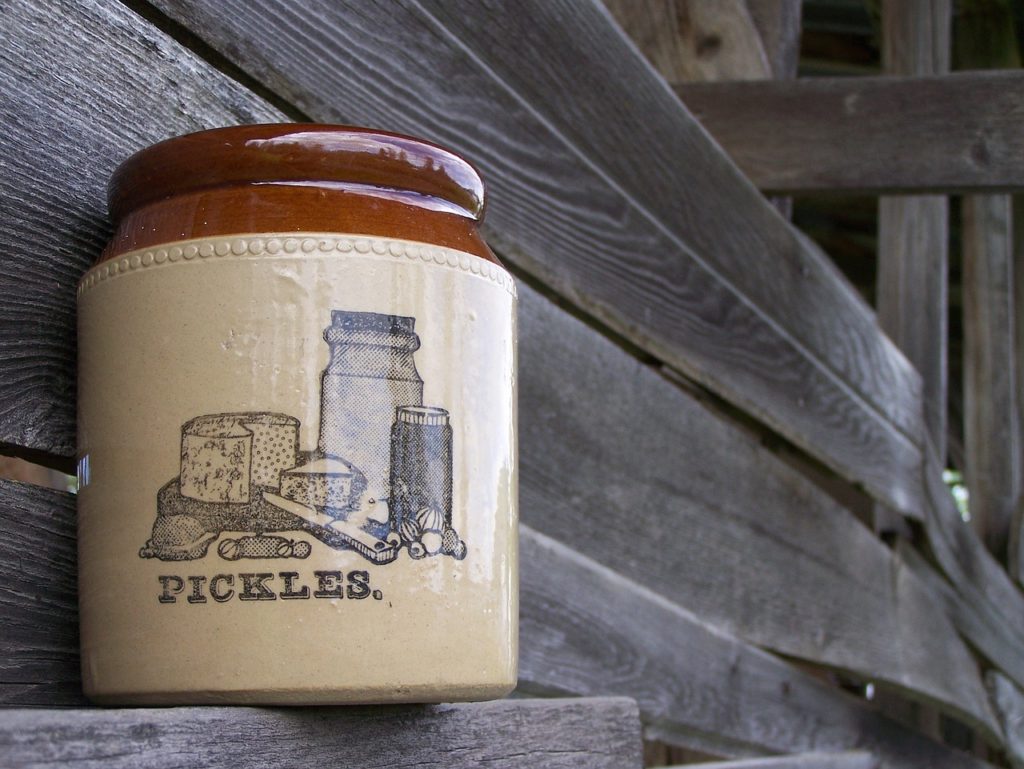
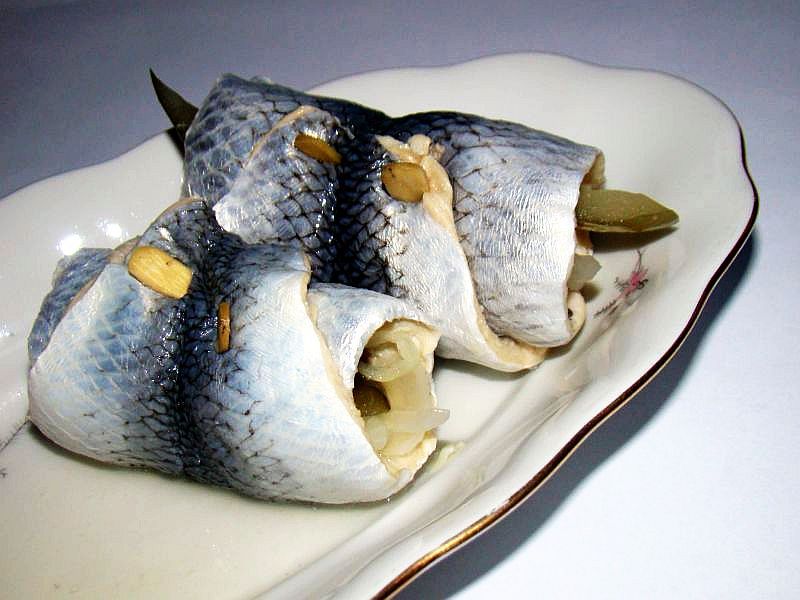
Use pickling cukes, regular eating cucumbers will turn to mush! Regular cucumbers definitely will not make chips or spears. Use firm, fresh, wart covered cukes.